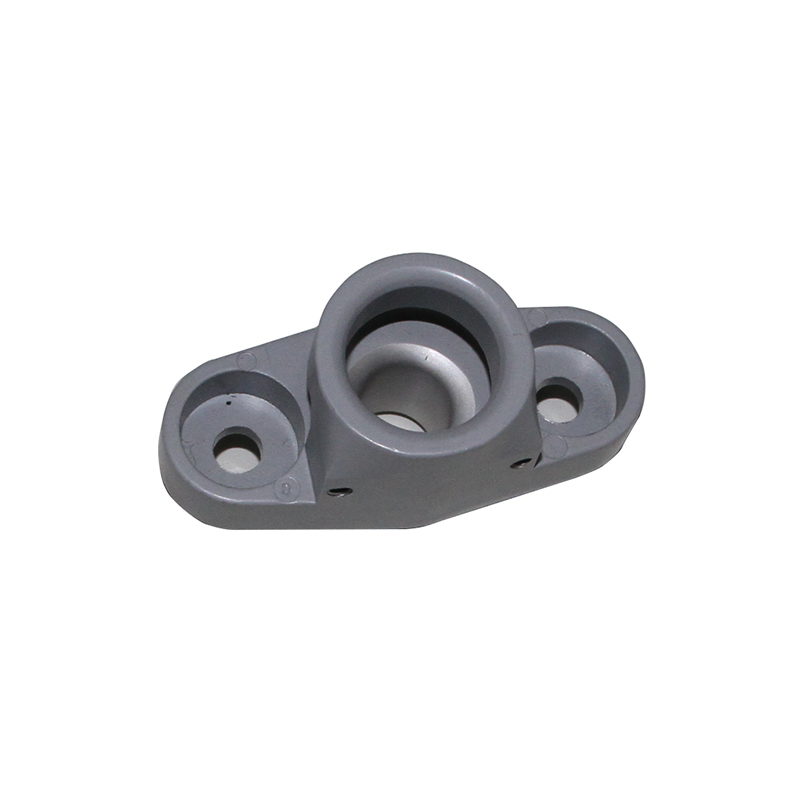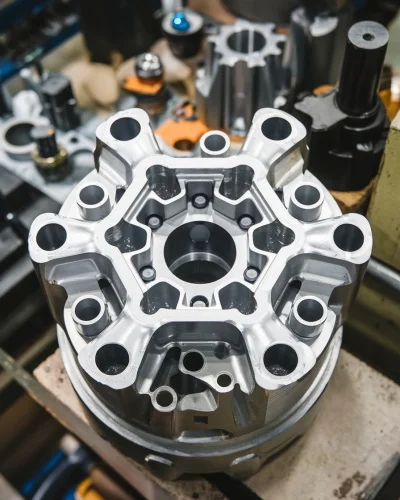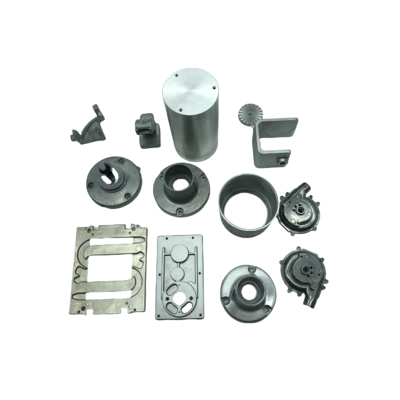Exactly How Foundry Services Enhance Manufacturing Performance and Quality in Industrial Applications
Foundry services play an important duty in improving production effectiveness and high quality across various industrial applications. By executing sophisticated steel spreading strategies, these services ensure components are manufactured with accuracy and consistency. This not just decreases lead times but also minimizes waste, fostering far better collaboration in between factories and producers. The impact of high-quality parts on functional efficiency increases important concerns regarding the future of commercial manufacturing. What developments lie ahead in this progressing landscape?
The Duty of Shop Solutions in Streamlining Production Processes

Furthermore, shops typically supply proficiency in alloy advancement, allowing makers to make use of sophisticated products that improve item efficiency. The cooperation in between shops and manufacturers fosters a far better understanding of production requirements, bring about enhanced procedures and improved item designs. By leveraging foundry services, manufacturers can achieve better flexibility, adapt to changing market needs, and maintain competition in the sector. Overall, the function of foundry services is vital in assisting in an extra cost-efficient and effective production landscape.
Advanced Technologies in Factory Procedures
Ingenious technologies are changing shop operations, significantly enhancing efficiency and accuracy. Automation plays an essential role, with robotic systems improving repetitive tasks such as molding and material handling. Furthermore, improvements in computer-aided design (CAD) and computer-aided manufacturing (WEBCAM) systems make it possible for factories to develop complex geometries with greater accuracy and reduced material waste.
The combination of synthetic intelligence (AI) and equipment understanding enhances quality control by monitoring processes in real-time and anticipating potential flaws prior to they take place. Using advanced products, such as lightweight alloys and composites, even more boosts the efficiency characteristics of cast items.
In addition, 3D printing technology is changing prototyping and tooling, enabling for quick personalization and minimized lead times. Jointly, these innovative modern technologies not just boost production efficiency yet likewise guarantee that the last products meet stringent quality standards, positioning foundries at the forefront of modern-day commercial applications.
Lowering Lead Times Via Effective Foundry Practices
Reliable factory practices play a vital role in reducing preparations within production atmospheres. By implementing structured manufacturing processes and advanced scheduling strategies, producers can boost workflow and maximize source allotment. These renovations not only accelerate result but also add to total operational effectiveness.
Structured Manufacturing Procedures
Simplifying production processes is essential for lowering lead times in the production sector. Reliable shop methods, including maximized workflows and source administration, play an essential duty in accomplishing this objective. By lessening waste and improving interaction among teams, factories can substantially improve their functional performance. The implementation of standard procedures likewise adds to constant top quality and faster turnaround times, enabling suppliers to react even more quickly to market needs. Furthermore, the integration of innovative technologies, such as automation and real-time monitoring systems, assists in identifying bottlenecks and promoting timely treatments. In general, an emphasis on structured manufacturing processes not only accelerates lead times but additionally improves the overall competition of commercial applications, guaranteeing that items satisfy customer assumptions properly.
Advanced Organizing Techniques
Effective manufacturing procedures normally lead makers to check out advanced organizing strategies as a way to further minimize lead times. By employing advanced algorithms and software, foundries can maximize process, straightening production routines with demand projections and source availability. Methods such as Just-In-Time (JIT) scheduling decrease stock prices while making certain timely product distribution, thus boosting operational performance. Furthermore, incorporating real-time data analytics enables foundries to prepare for potential delays and change schedules proactively. This adaptability not only improves operations however additionally improves general performance. Additionally, collective preparation with customers and suppliers can promote an extra synchronized supply chain, additional reducing lead times. Inevitably, these advanced scheduling methods equip shops to accomplish greater helpful hints performance and superior quality in their production see post procedures.
Guaranteeing Precision and Top Quality in Steel Spreading
Guaranteeing accuracy and quality in steel spreading needs a meticulous technique that incorporates every phase of the production process. This process starts with cautious style and engineering of the mold and mildews, assuring they can hold up against the liquified metal's temperature level and pressure. The option of high-grade raw products is vital, as contaminations can jeopardize the last item.
Once the materials are prepared, specific temperature level control throughout melting and pouring is essential to achieve the preferred buildings in the cast metal. Monitoring solidification and air conditioning rates further warranties dimensional accuracy and surface finish.
Quality assurance practices, such as non-destructive screening and examination, are important to identifying defects early in the procedure. Aluminum Foundry. In addition, using competent personnel who comprehend the subtleties of steel casting contributes significantly to keeping high requirements. Overall, these techniques collectively improve the dependability and performance of actors components in numerous industrial applications
Lessening Waste and Maximizing Source Application

Additionally, reusing scrap steel within the shop itself can significantly reduce waste, changing byproducts into functional resources. Lean manufacturing concepts also contribute to waste decrease by simplifying procedures and getting rid of unnecessary steps, bring about more efficient procedures.
In addition, normal upkeep of devices guarantees peak efficiency, preventing malfunctions that can lead to lost products. By concentrating on these approaches, foundries not only reduce expenses yet also contribute to lasting methods, aligning with the expanding demand for ecologically liable production techniques in industrial applications.
The Affordable Benefit of High-Quality Parts out there
Premium components provide a significant competitive benefit in the factory market, where accuracy and toughness check this are extremely important. Makers that prioritize premium products and craftsmanship can boost product efficiency and dependability, leading to boosted customer complete satisfaction. This advantage is especially noticeable in industries such as auto and aerospace, where part failing can have catastrophic effects.
Top notch parts commonly result in reduced upkeep prices and prolonged product life expectancies, which can be appealing selling points for prospective customers. As market demands grow for efficient and lasting modern technologies, the emphasis on quality ends up being even a lot more vital. Business that buy high-quality foundry solutions not just enhance their production procedures but also differentiate themselves from competitors who may compromise top quality for price financial savings. The commitment to top quality elements inevitably converts into a stronger market placement and lasting company success.
Frequently Asked Concerns
What Sorts of Products Do Factory Services Usually Deal With?
Shop solutions generally deal with steels such as light weight aluminum, iron, steel, and brass, in addition to various alloys. They also take care of products like porcelains and compounds, providing to varied commercial demands and specs in manufacturing processes.
Exactly How Do Foundry Services Influence Overall Supply Chain Administration?
Factory services substantially improve supply chain management by enhancing material sourcing, lowering lead times, and ensuring consistent top quality. Their capability to provide tailored solutions promotes cooperation among stakeholders, inevitably improving general functional performance and responsiveness in manufacturing.
What Industries Benefit Many From Foundry Services?
Industries such as automobile, consumer, aerospace, and building goods considerably gain from shop services. These markets count on precision castings to fulfill stringent high quality standards and improve their general production procedures and product performance.
Are Factory Providers Eco friendly and lasting?
Factory solutions can be eco friendly and lasting, specifically when using sophisticated technologies and processes - Aluminum Foundry. Advancements such as reusing materials, lowering discharges, and enhancing power use add to lessening their eco-friendly effect in industrial applications

Just How Can Business Select the Right Foundry Provider?
Business can choose the appropriate shop solution provider by evaluating proficiency, manufacturing abilities, quality qualifications, innovation made use of, customer testimonials, and sustainability methods while making sure alignment with their details job requirements and long-term service objectives.
Shop services play a necessary role in improving manufacturing effectiveness and quality throughout numerous commercial applications. The collaboration in between suppliers and shops fosters a better understanding of production requirements, leading to maximized procedures and enhanced item styles. Reliable shop techniques play an important role in decreasing lead times within manufacturing environments. By employing innovative formulas and software program, factories can optimize workflows, aligning manufacturing schedules with need forecasts and resource availability. Business that invest in top notch factory services not just enhance their manufacturing procedures but likewise separate themselves from rivals that may compromise high quality for price financial savings.